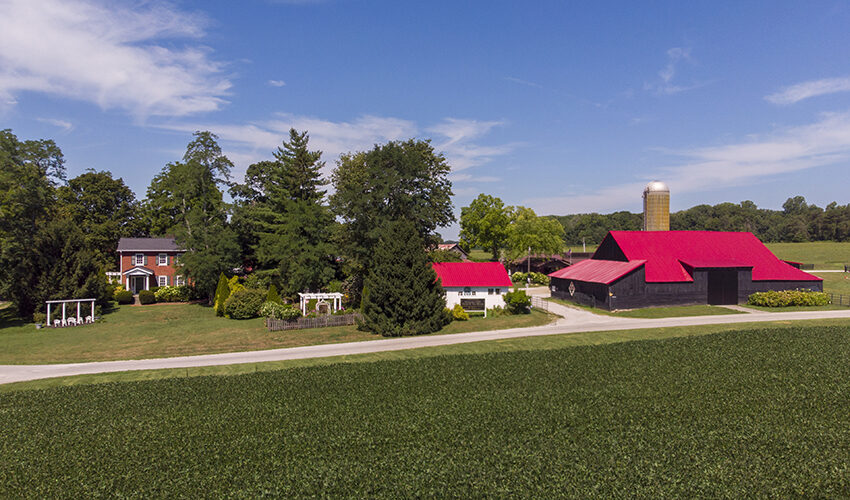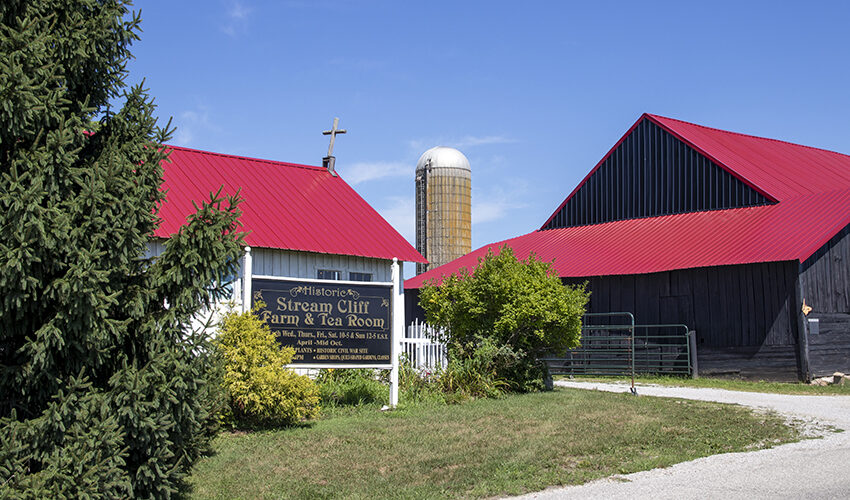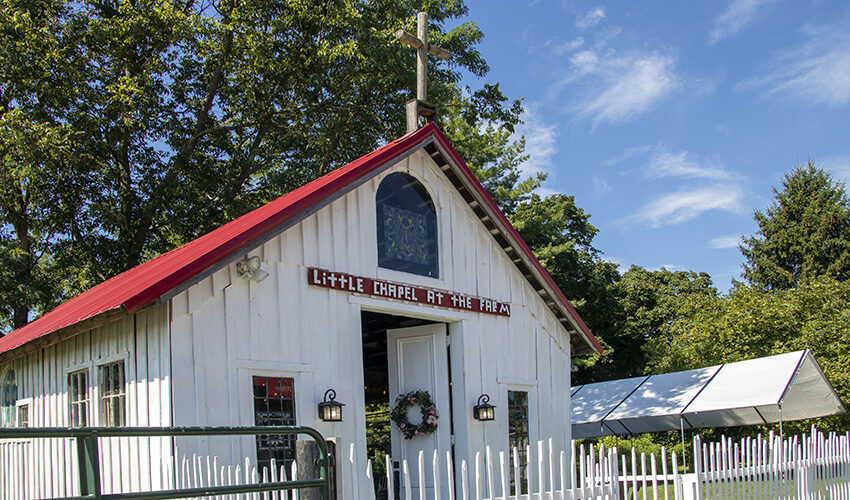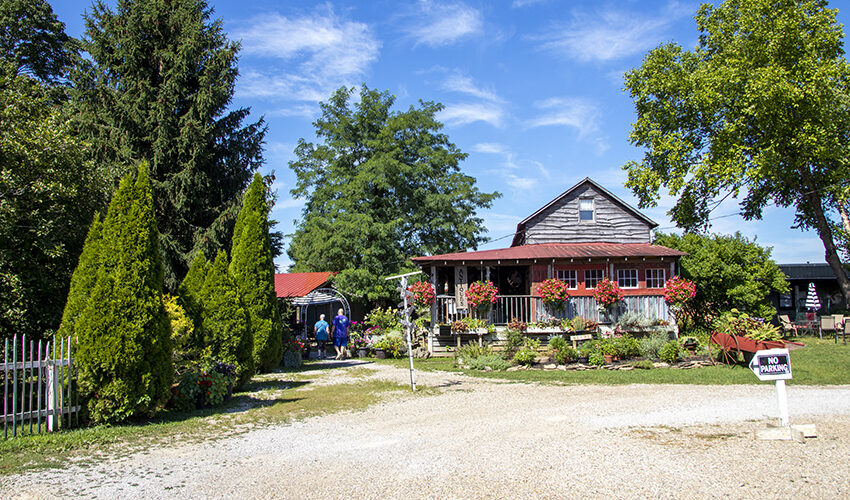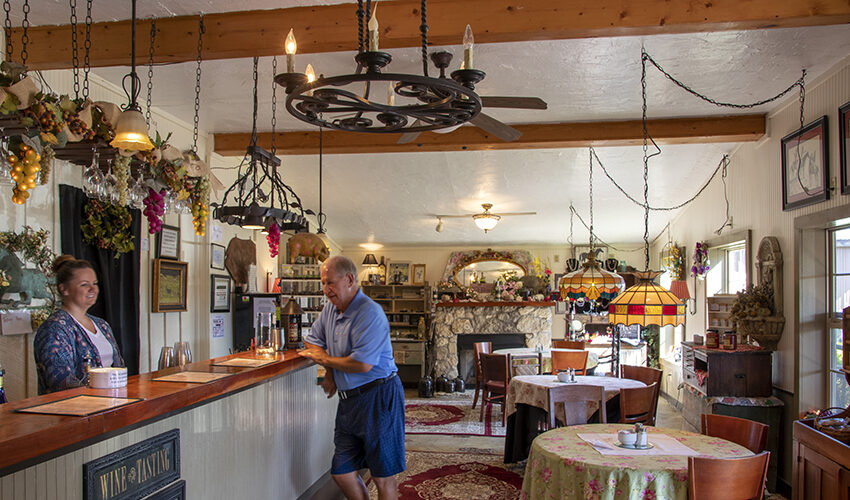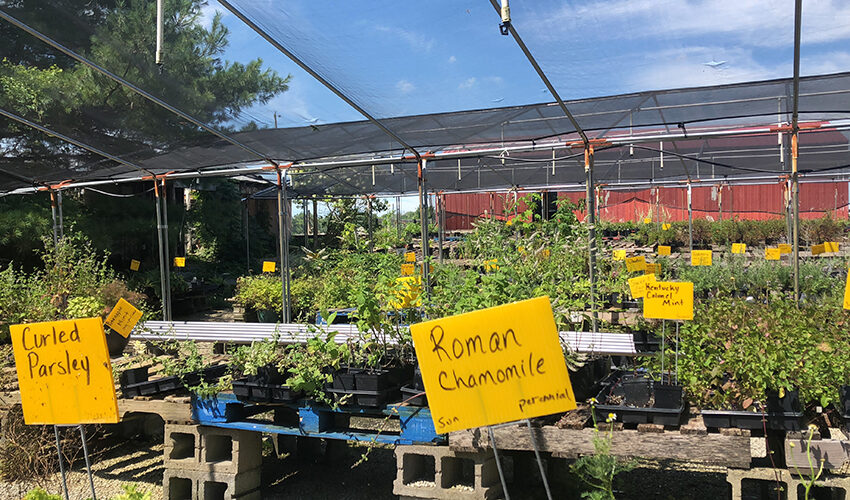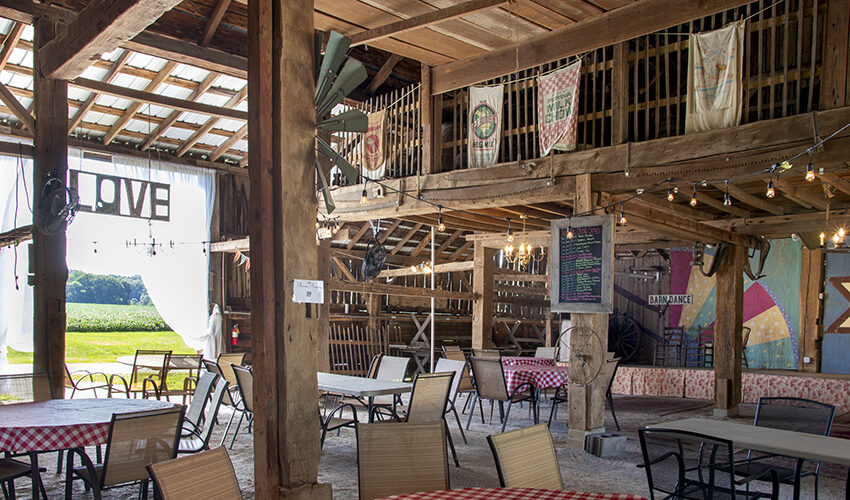NEWS
Jennings County Farmers Win Rural Preservation Award
For their commitment to preserving their historic farm and incorporating its nineteenth-century buildings into their business, the Manning family wins our 2020 John Arnold Award
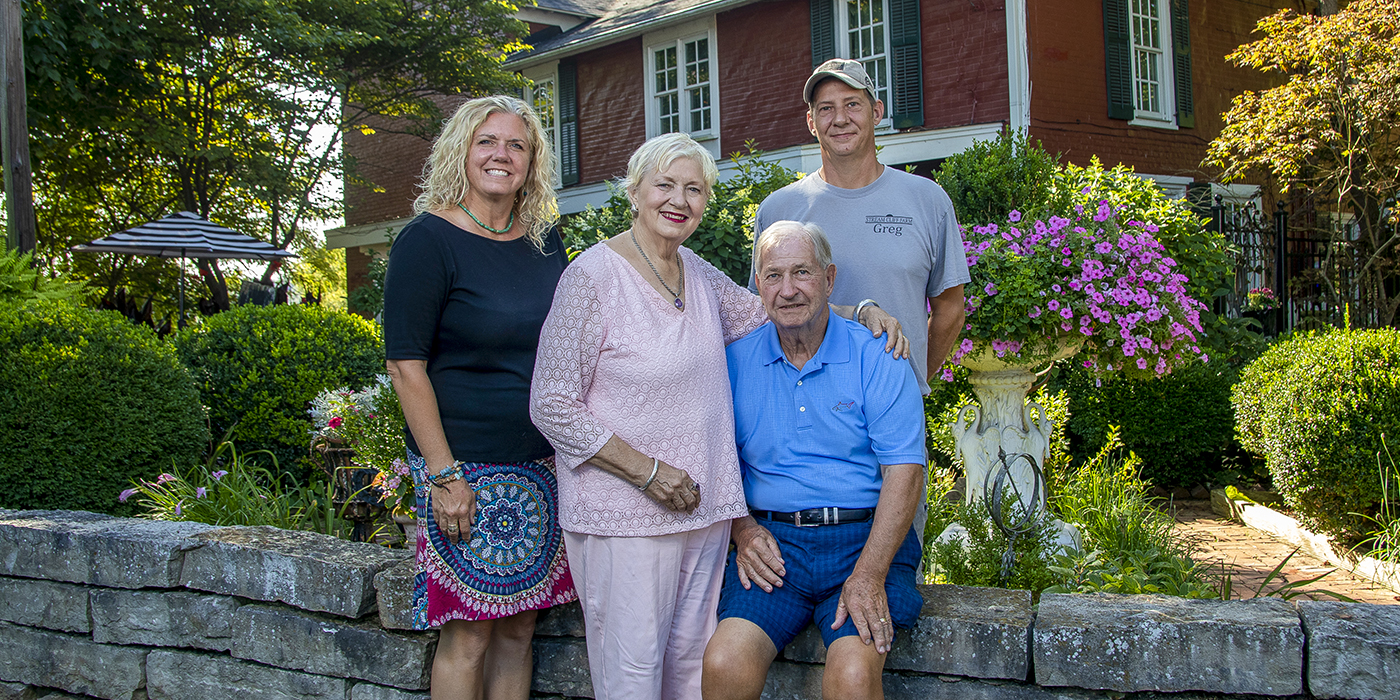
Cultivating Their Roots
Just outside Commiskey in Jennings County, the Stream Cliff Farm bridges nearly two centuries of history. Dotted by an impressive collection of nineteenth-century buildings, today the farm operates as an herb and flower business, restaurant, winery, and special events venue.
For their role in preserving the farm’s historic structures and incorporating them into its day-to-day business, owners Betty and Gerald Manning won the 2020 John Arnold Award for Rural Preservation presented by Indiana Landmarks and Indiana Farm Bureau.
Stream Cliff’s origins date back to 1821, when James Harmon moved from Maine to Indiana, where he established a farm using a land grant awarded to his father, a Revolutionary War veteran who served under Benedict Arnold. Harmon reportedly lived in a hollow tree while he built a barn and baked bricks to construct his farmhouse between 1836 and 1843. The property gained notoriety on July 11, 1863, surviving a visit by Confederate soldiers during General John Hunt Morgan’s raid through southern Indiana. Harmon died without heirs a few months later, leaving the farm to the Methodist church. Betty Manning’s ancestors bought the farm shortly thereafter, and since then six generations have worked on the property.
“There’s a longing to keep things nice so other generations can enjoy what you’ve enjoyed. I do recognize how special that is,” says Betty. “Living here all these years gives me more joy than anywhere else.”
The farm’s oldest structures figure prominently in Betty’s childhood memories. She recalls visiting her grandfather in the brick farmhouse and helping her father drive cattle to the property or rake hay to put up in the c.1821 barn. Her connection to the land led her and Gerald to take on the farm shortly after marrying in 1965, moving into the 1836 brick farmhouse to raise their family.
Personal hobbies and gardening interests took the farm in a new direction around 1972, when the Mannings started selling crafts, cornhusk dolls, dried florals, and hand-carved Santas during the holidays. They pressed Betty’s grandpa’s blacksmith shop—located in an early nineteenth-century cabin—back into service, creating hand-forged items to sell. They created quilt-shaped gardens in homage to Betty’s grandmother, an avid quilter and gardener. “We were practicing agritourism before it had a name,” says Betty.
As Stream Cliff’s flower and herb-growing business expanded, the Mannings repurposed more of the farm’s historic buildings. They converted a mid-nineteenth-century corncrib to a chapel and adapted the c.1821 English barn and a smaller nineteenth-century barn nearby to host weddings, receptions, and other events. A c.1868 building, believed to have been built to house workers constructing a nearby railroad, provides space for an antique and gift shop. A former chicken house became the farm store. Betty’s grandpa’s blacksmith shop is now used for selling indoor plants, while Gerald’s c.1970 blacksmith shop became a winery tasting room and gift shop.
Keeping Stream Cliff Farm running is a multi-generational effort supported by the Mannings’ children, grandchildren, and friends. Gerald and Betty’s son Greg and his wife Lauren oversee cultivation of the plants offered for sale, while their daughter Elizabeth supervises food-related business, including the farm restaurant and tearoom, Twigs and Sprigs, assisted by her husband Troy. The family rents out 270 of the farm’s 470 acres of cropland to an extended family member, still putting up their own hay for the farm’s donkeys, goats, and horses.
Along with providing a destination for shopping and dining, Stream Cliff hosts wildflower walks, art shows, and classes on cooking, art, crafts, and gardening. Its restaurant, shops, and gardens are open mid-March through mid-October. During cold-weather months, the farm hosts special holiday teas, open houses, and fireside dinners prepared with the farm’s herbs. The Mannings share news, photos, and hours of operation for the property’s various ventures on the farm’s website, streamclifffarm.com.
This year, during a pandemic that instituted new rules limiting crowd sizes and conditions, the Mannings rallied to adapt their business practices, realizing they would likely be unable to host the large groups and bus tours that have visited in the past. They installed outdoor dining areas under a canopy, allowing them to offer more distanced dining options.
“It may be a more difficult year to maintain growth. But each generation has taken its turn to hang onto this farm, sometimes under real adverse conditions,” says Betty. “My internal being says to keep what people have worked so hard to build. I’ll be darned if a pandemic brings us down.”
Stay up to date on the latest news, stories, and events from Indiana Landmarks, around the state or in your area.

